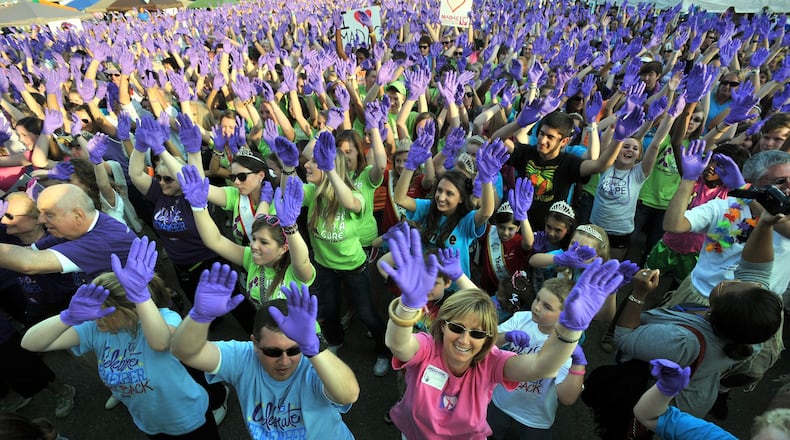The CEO of the American Cancer Society said the Atlanta-based nonprofit expects a $200 million revenue shortfall this year as a result of the pandemic that has led to a dramatic drop in donations and fundraising activity.
The decline has forced the Atlanta-based nonprofit to lay off 1,000 employees, about 150 of whom are in Atlanta.
There are still about 300 employees in Georgia and more than 3,350 nationwide.
“There was no way to get where we needed to be for the time being without, unfortunately, making the decision to cut jobs,” said CEO Gary Reedy. “We’re hoping and praying that we don’t have to do more.”
The American Cancer Society is a key resource in the fight against cancer.
It funds research, provides information about prevention and supports patients and caregivers facing the disease, which is one of the leading causes of death in the United States.
This year alone, there will be an estimated 1.8 million new cancer cases diagnosed and 606,520 cancer deaths in the United States.
The organization-wide layoffs were done in phases over two months and included employees cut from information management, finance, marketing, communications, fundraising and research. There were also furloughs and pay cuts.
In addition to staff reductions, executive salaries for vice president level and above were reduced between 10% and 20%.
Reedy elected to take a 25% reduction in salary.
“We tried to be as strategic as possible and make sure that we could still do our core functions that are so critical to our mission,” he said.
The American Cancer Society is not alone.
Seventy-three percent of U.S. adults say they donated money to charities in the past year, less than the previous low of 79% in 2009, according to a recent Gallup poll.
“This is a stark reminder of how serious this pandemic is,” said Bill Stanczykiewicz, an associate clinical professor and director of The Fund Raising School at Indiana University Lilly Family School of Philanthropy.
“There’s no doubt that the economic calamity caused by this health crisis is going to depress charitable giving,” most of which comes from individuals, he added.
One of the American Cancer Society’s biggest fundraisers is the Relay for Life events; the biggest is held annually in Gwinnett County. The peak season for them is mid-March to the end of June — which this year coincided with a national health crisis shutdown.
The pandemic meant that the nonprofit, as many others, had to suspend or cancel face-to-face fundraising activities. Some activities moved online as a way to keep people engaged.
The future of such events is unpredictable, depending on whether there is a second spike in coronavirus cases as the year goes on.
Reedy said the American Cancer Society was already integrating and consolidating some departments to be more streamlined when COVID-19 hit and forced the nonprofit, which has its global headquarters on Williams Street near Centennial Olympic Park, to accelerate the process.
The organization instituted cost-saving measures such as a hiring freeze and cutting travel and money spent on consulting services. It has — at least temporarily — closed its Hope Lodge locations, including one in Atlanta, that provide a free place to stay for cancer patients and their caregivers during treatment away from home. It also suspended its free transportation services for cancer patients to get to and from treatments and doctor visits.
Each year, the American Cancer Society spends about $100 million for cancer research.
Reedy said this year, “we’ll be lucky to fund half of that.”
It’s also looking at reducing its real estate footprint in Atlanta and elsewhere. Whether it stays in its Williams Street location in a reduced capacity or moves to another site is being explored although Reedy said the nonprofit is committed to keeping its presence in Atlanta, where it has been since 1931.
“When this pandemic started, cancer didn’t stop and neither have we,” he said.
Stanczykiewicz is optimistic that donors get it.
“If your donor cared about you on Feb. 29, they will still care about you now,” he said.
Nonprofits will have to be creative and flexible in fundraising, especially as the end of the year, a big time for people to give to charities, approaches.
It’s hard to predict the final cost to the bottom line, though, Stanczykiewicz said.
“None of the previous natural disasters or economic recessions have shut down the entire world economy.”
About the Author
Keep Reading
The Latest
Featured



